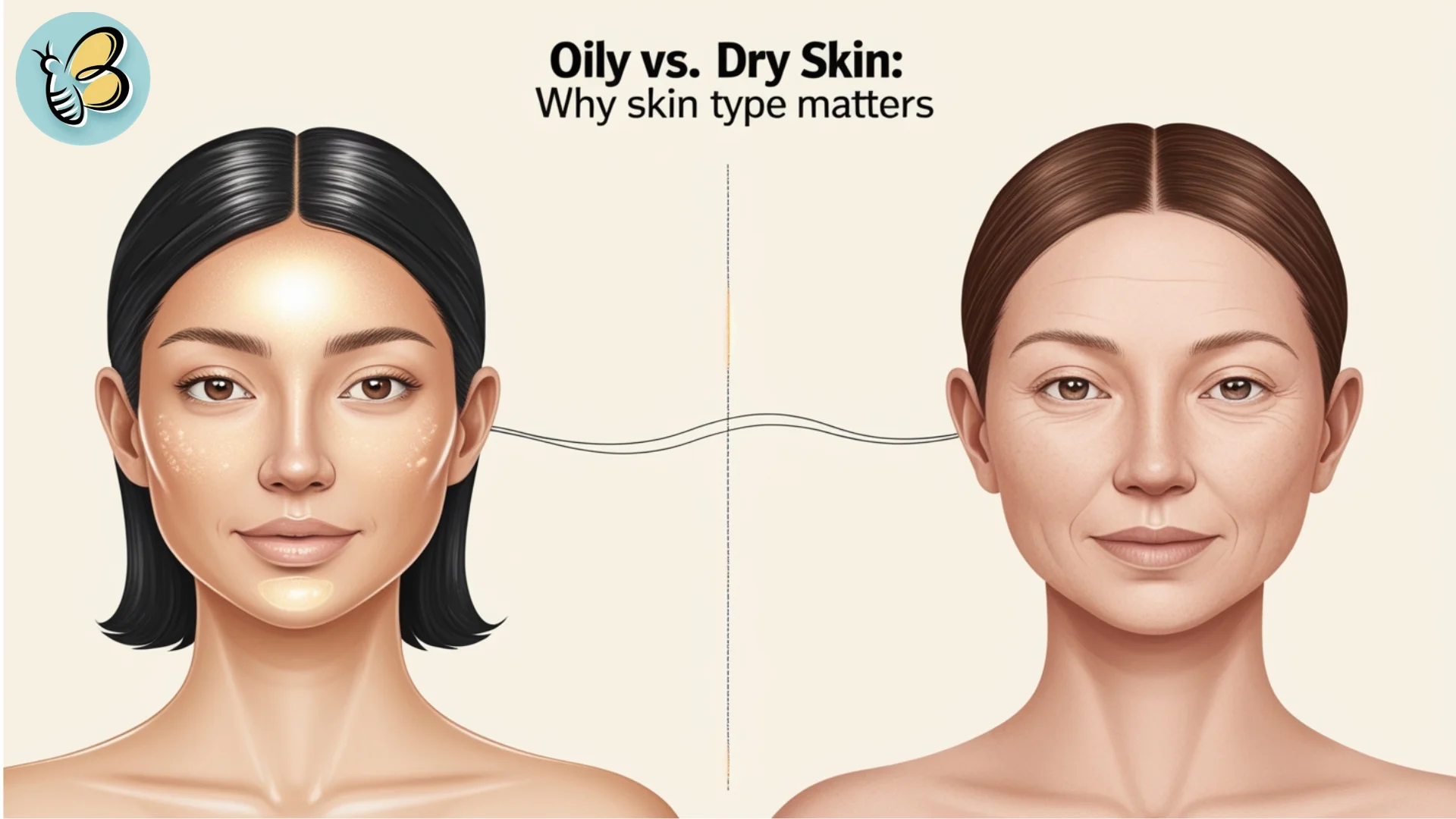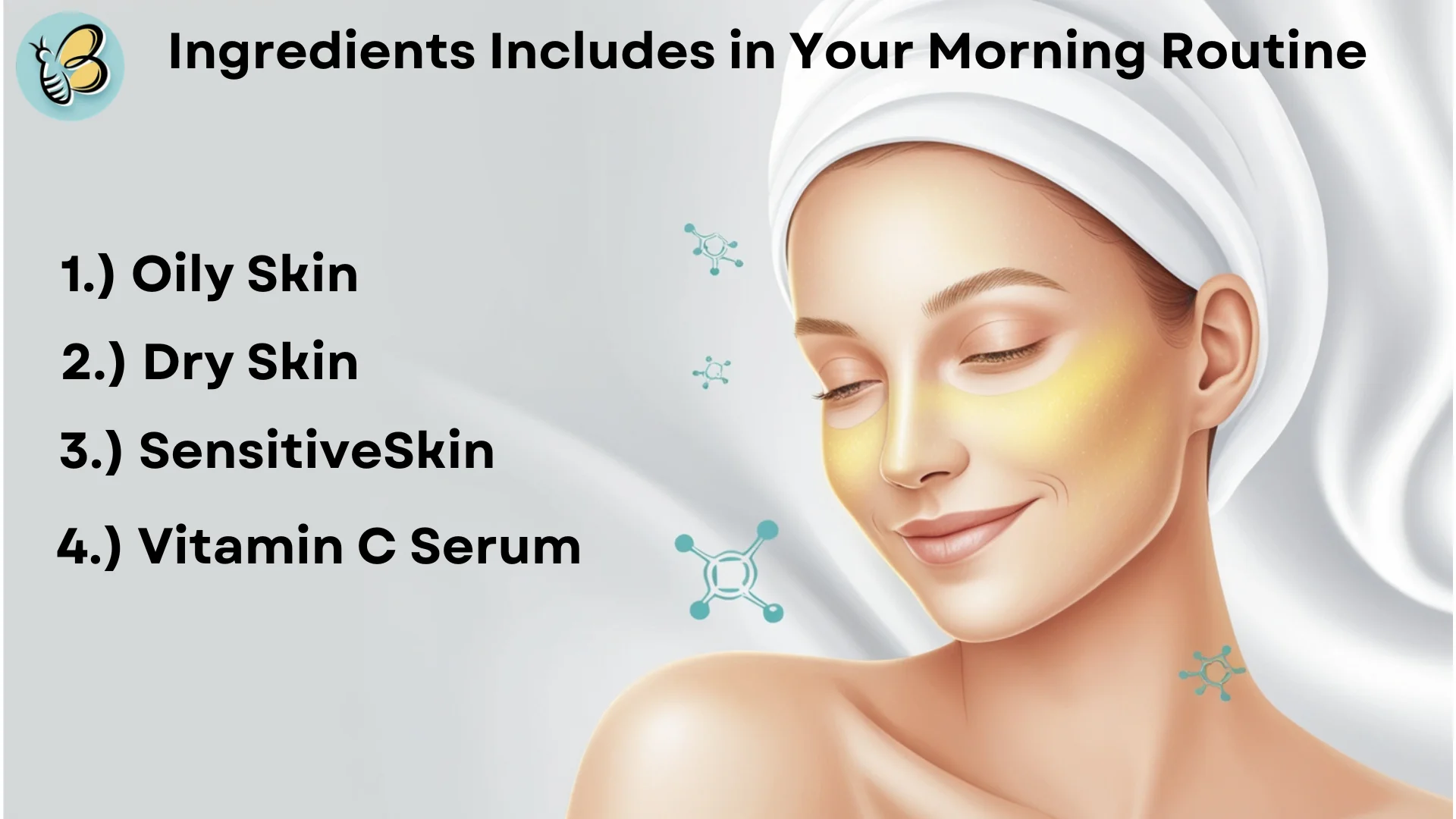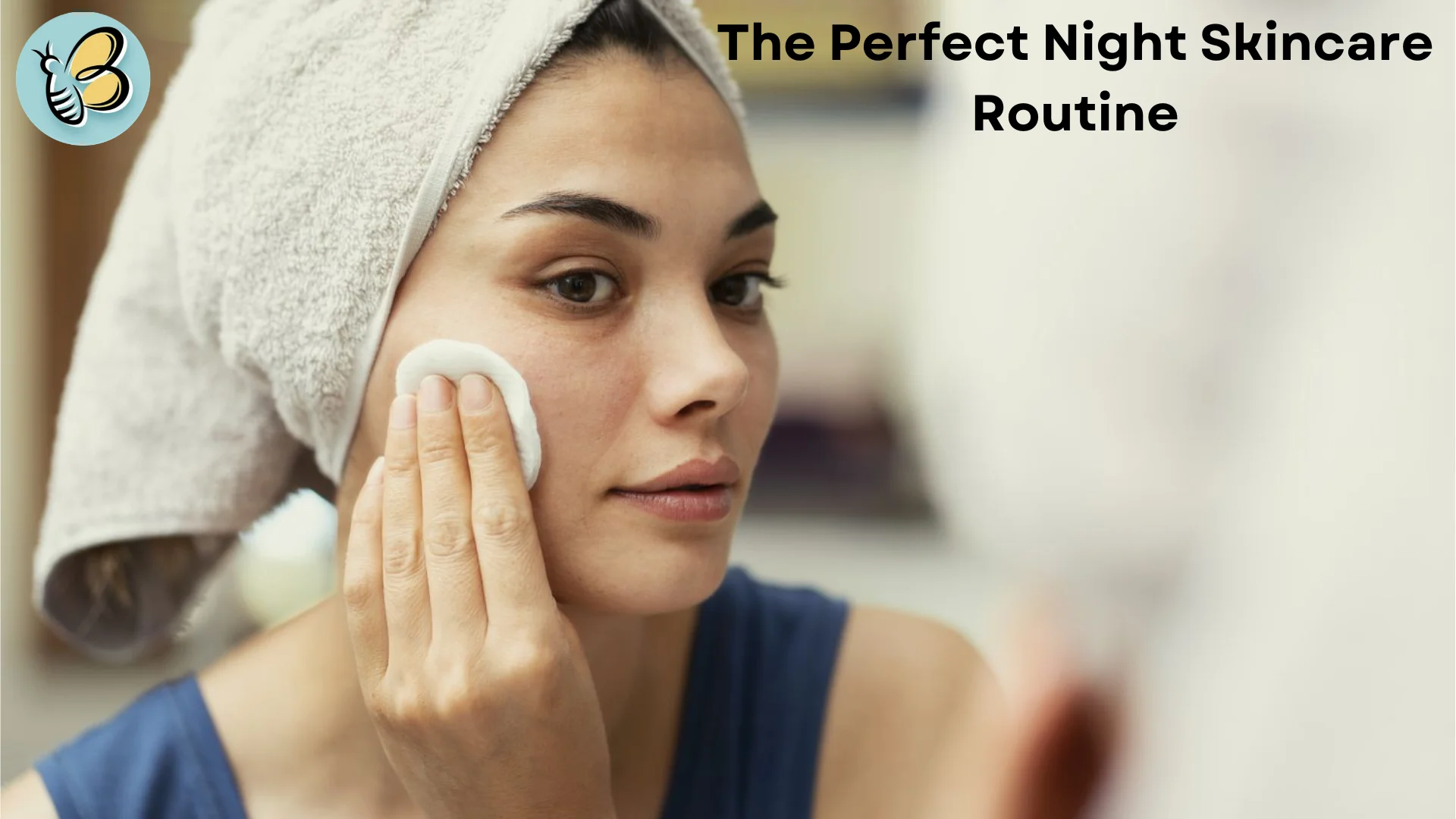Have you ever wondered, “Is my morning skincare routine really that different from my evening one?” If so, you’re not alone! The answer is a definite yes—and understanding why can make all the difference in your skin’s health and radiance. So, why can’t we use the same products for both routines? After all, it’s the same skin, right?
Well, not exactly! During the day, your skin needs protection from the sun, pollution, and environmental stressors. Whether you’re commuting, walking, or working out, your skin is exposed to UV rays, dust, and debris. Your morning skincare routine is all about building a shield to protect your skin.
At night, however, it’s all about relaxation and restoration. Your skin doesn’t face the same environmental threats, so your PM routine should focus on nourishing, hydrating, and repairing your skin while you sleep.
If this sounds familiar, don’t worry—our detailed guide is here to break down everything you need to know!
Pro Tip: No matter if it’s AM or PM, a good rule of thumb is to apply lighter products first, followed by heavier ones. This allows for better absorption and more effective results.
Oily vs. Dry Skin: Why Skin Type Matters

Before diving into your daily skincare routine, you need to know your skin type. Here’s why:
- Oily Skin: For oily skin types, stick to water-based cleansers. Oil-based products can make your skin greasier—except when you need to remove heavy makeup. In those cases, oil-based cleansers are highly effective at breaking down the layers of makeup.
- Dry Skin: Dry skin benefits from oil-based cleansers that lock in moisture and help maintain hydration.
Toners: If you have oily skin, alcohol-based toners can reduce the appearance of pores and control sebum production. Just remember—don’t overdo it! Too much toner can make your skin more sensitive.
When Should You Start an AM/PM Skincare Routine?
The sooner, the better! Your skin is the first thing people notice about you, and it reflects your age more than you might think. Those who start caring for their skin early tend to enjoy fresher, younger, and plumper skin as they age. Just like any other part of your body, your skin needs nutrients and protection to stay healthy and glowing.
Morning Routine – Start with the Basics and Add Only What You Need
Your morning routine should focus on protection and preparation. You want to hydrate, protect yourself from environmental aggressors like UV rays and pollution, and keep the routine light and efficient.
The Perfect Morning Skincare Routine for Working Women
Starting your day with a well-curated skincare routine is essential for maintaining healthy, radiant skin, especially for working women who often juggle multiple responsibilities. Here’s how you can build an effective routine tailored to your skin type and lifestyle, ensuring your skin stays balanced and glowing all day long.
-
Cleansing
Not everyone needs a deep cleanse in the morning, but starting your routine with the right cleanser sets the foundation for everything that follows.
- Dry or Sensitive Skin: If you have dry or sensitive skin, you don’t want to strip it of its natural oils. Opt for a gentle hydrating cleanser or even just a splash of water to refresh your face in the morning. Look for ingredients like glycerin or hyaluronic acid to retain moisture while cleansing.
Practical Tip: If your skin feels tight or turns red after cleansing, your product might be too harsh. Switching to a more hydrating or gentle formula can make all the difference.
- Oily or Combination Skin: For oily or combination skin, a mild gel-based cleanser is ideal. Ingredients like salicylic acid or tea tree oil can help control oil production without over-drying the skin. This prevents excess shine during the day.
Practical Tip: If your skin feels overly tight after using a cleanser for oily skin, try one that balances oil control with hydration, as stripping too much oil can cause your skin to produce even more.
-
Vitamin C Serum
After cleansing, applying a Vitamin C serum can significantly enhance your skin’s glow and protect it from environmental damage throughout the day. Vitamin C is a potent antioxidant that helps to neutralize free radicals from pollution and UV exposure while also brightening your complexion and reducing dark spots.
- Why Use Vitamin C in the Morning? Vitamin C works best during the day because it boosts your skin’s defense against environmental stressors like pollution and UV rays. Pairing it with sunscreen amplifies protection against sun damage, helping to prevent premature aging.
Pro Tip: Look for Vitamin C serums that also contain hyaluronic acid for added hydration or ferulic acid for enhanced stability and efficacy.
-
Moisturizer
A good moisturizer is essential for maintaining your skin’s hydration levels, but you don’t always need a heavy formula, especially in the morning. The key is to choose something lightweight and fast-absorbing that works well under sunscreen and makeup.
- Dry Skin: For dry skin, a gel-cream formula that contains nourishing ingredients like ceramides or squalane can lock in moisture without feeling greasy.
- Oily Skin: If you have oily skin, opt for an oil-free, mattifying moisturizer that controls shine. Ingredients like niacinamide can balance oil production and keep your skin looking fresh throughout the day.
Pro Tip: If you notice your skin becoming greasy halfway through the day, try switching to a lightweight, oil-free moisturizer or even a water-based gel. Skipping heavy moisturizers can keep your makeup looking fresh longer.
-
Sunscreen
Regardless of your skin type or the weather, sunscreen is a must. Sun exposure is the number one cause of premature aging, and even if you’re indoors, harmful UV rays can penetrate through windows. Additionally, blue light from screens can contribute to skin damage.
- What to Look For: Use a broad-spectrum sunscreen with SPF 30 or higher to protect against both UVA and UVB rays. If you’re prone to sensitivity or breakouts, consider a mineral sunscreen with zinc oxide or titanium dioxide, which tends to be gentler and less likely to irritate the skin.
Expert Insight: If you dislike the heavy or greasy feel of sunscreen, go for lightweight or tinted formulas that double as makeup. This not only saves you time in the morning but also ensures your skin is fully protected.
-
Bonus Tips for Busy Mornings
- Save Time with Dual-Purpose Products: If you’re in a rush, look for moisturizers that include SPF to streamline your routine. Some moisturizers even have a tint, allowing you to skip foundation entirely.
- Keep Your Skin Hydrated All Day: For those long days in the office or on the go, consider keeping a hydrating mist at your desk. Spraying your face throughout the day can help refresh your makeup and keep your skin looking dewy without making it oily.
Key Ingredients to Include in Your Morning Routine

For Oily Skin: Look for salicylic acid, niacinamide, and zinc in cleansers and moisturizers to help control oil production. These ingredients help prevent clogged pores and reduce the appearance of shine.
- For Dry Skin: Ingredients like hyaluronic acid, glycerin, and ceramides are your go-to. These work to deeply hydrate and restore the skin’s barrier, preventing moisture loss throughout the day.
- For Sensitive Skin: Gentle, calming ingredients like aloe vera, oatmeal, and chamomile soothe irritation and redness. Also, avoid fragrances and alcohol in your skincare products.
- Vitamin C Serum: As mentioned earlier, using Vitamin C in the morning protects your skin from environmental stressors and boosts brightness. It also stimulates collagen production, keeping your skin firm and youthful over time.
Why Vitamin C in the Daytime?
Vitamin C acts as a shield for your skin. During the day, your skin is exposed to harmful UV rays, pollutants, and blue light from screens, all of which can accelerate aging and cause hyperpigmentation. Vitamin C, being an antioxidant, fights off these free radicals, neutralizing the damage before it starts. Pairing it with sunscreen enhances this protective barrier, making your skin more resilient against everyday aggressors.
The Perfect Night Skincare Routine

While your morning routine is all about protection, your night routine focuses on repair and rejuvenation. At night, your skin enters a state of regeneration, making it the ideal time to treat skin concerns like aging, acne, and hyperpigmentation. Let’s break down the essential steps for a nighttime routine that ensures your skin wakes up glowing and healthy.
-
Double Cleanse (If Needed)
If you wear makeup or sunscreen or spend time outdoors, a double cleanse ensures that your skin is thoroughly cleansed without stripping it of its natural oils. Double cleansing involves two steps:
- Oil-Based Cleanser: The first step is using an oil-based cleanser or balm to melt away makeup, sunscreen, and excess sebum. This helps dissolve all the oil-based impurities that water-based cleansers might miss. Even oily skin can benefit from oil cleansers as they dissolve oils gently without disrupting the skin’s barrier.
Pro Tip: Look for oils like jojoba, almond, or grapeseed in your cleanser—these help balance oil production while deeply cleansing.
- Water-Based Cleanser: Follow with a gentle water-based cleanser to wash away any remaining dirt and impurities. For sensitive or dry skin, use a hydrating cleanser with ingredients like glycerin or chamomile. For oily or acne-prone skin, opt for a gel-based or foaming cleanser with salicylic acid or tea tree oil.
For Minimal Makeup Users: If you don’t wear much makeup or feel your skin isn’t too clogged at the end of the day, you can skip the double cleanse and opt for a single gentle cleanse.
-
Treatment Products
The night is the perfect time to introduce active treatments into your routine because your skin is in repair mode. This is when you can focus on addressing specific skin issues like aging, acne, or uneven texture.
- Retinoids:For anti-aging, retinoids (such as retinol or tretinoin) are a powerhouse ingredient. They boost collagen production, reduce fine lines, and improve skin texture. Retinol plays a key role in skincare routines, but it can be quite potent. It’s best to start slow—using it once or twice a week—and gradually build up to avoid irritation.
Practical Tip: Retinoids can make your skin more sensitive to the sun, so always use them at night and wear sunscreen during the day.
- AHAs and BHAs: Exfoliating acids like alpha-hydroxy acids (AHAs) or beta-hydroxy acids (BHAs) work to remove dead skin cells, refine pores, and brighten the skin. AHAs (like glycolic or lactic acid) are great for dry or sun-damaged skin, while BHAs (like salicylic acid) penetrate deeper into pores, making them ideal for acne-prone or oily skin.
Pro Tip: Over-exfoliation can damage your skin barrier. Start with 1-2 times a week and monitor how your skin responds before increasing the frequency.
- Niacinamide: If your skin is sensitive or prone to redness, niacinamide is a calming, anti-inflammatory ingredient that helps to even out skin tone and strengthen the skin barrier. It pairs well with retinoids and exfoliants, helping to mitigate irritation.
-
Moisturizer or Night Cream: Lock in Moisture
As you sleep, your skin loses moisture, making it crucial to use a hydrating moisturizer or night cream to keep your skin nourished and help repair its barrier overnight.
- Dry Skin: Choose a rich night cream that contains ingredients like ceramides, hyaluronic acid, or squalane. These help to lock in moisture and repair the skin’s protective barrier, leaving your skin soft and hydrated by morning.
- Oily Skin: For oily or combination skin, opt for a lightweight gel-based moisturizer. Ingredients like niacinamide or hyaluronic acid offer hydration without clogging your pores or making your skin feel greasy.
Pro Tip: Overnight masks can be a great addition once or twice a week for extra hydration. They create a protective barrier over your skin to lock in active ingredients and moisture, leaving your skin plump and refreshed by morning.
-
Optional Treatments: Customize Based on Your Skin’s Needs
Your night routine is also a great time to add extras based on what your skin needs. This could include:
- Eye Cream: To target puffiness or fine lines around the eyes, opt for an eye cream containing caffeine or peptides. Apply gently with your ring finger to avoid tugging the delicate skin around the eyes.
- Spot Treatments: For acne-prone skin, a targeted spot treatment containing benzoyl peroxide or sulfur can help reduce blemishes overnight. Apply after cleansing but before moisturizing.
-
Consistency Over Perfection: Adjusting Your Routine
It’s easy to get caught up in layering multiple products, but consistency and simplicity are what lead to real results over time. Here’s how to approach your routine in a way that benefits your skin:
- Start Slow with Actives: Powerful ingredients like retinoids, AHAs, and BHAs can cause irritation if used too often or in high concentrations. Instead of overwhelming your skin, start slowly, alternating nights, and build up as your skin gets accustomed.
Pro Tip: Rest days are important. Give your skin a break from actives to prevent irritation and let it recover naturally.
- Don’t Overdo Exfoliation: While exfoliation can smooth your skin and boost radiance, doing it too frequently can strip your skin of its natural oils and disrupt the barrier. Limit chemical exfoliation to 1-2 times a week unless your skin is used to it.
Alternative Tip: For those with sensitive skin, enzyme-based exfoliants are gentler and less likely to cause irritation compared to acids or physical scrubs.
- Adapt to the Seasons: Your skin’s needs change with the weather, stress, and even diet. In winter, you may need richer moisturizers or extra hydration, while summer months might call for lighter formulations and fewer layers. Always listen to your skin.
-
Bonus Tips for Busy Nights
- Skip a Step (Mindfully): Some nights, you might feel too tired to go through every step. On those nights, stick to the essentials—cleanser, moisturizer, and, if needed, a treatment product.
- Night Masks for Extra Nourishment: If your skin feels particularly dry or dull, consider adding an overnight mask to deeply nourish your skin while you sleep. These masks are packed with hydrating ingredients like glycerin, hyaluronic acid, and peptides to give your skin a refreshed look by morning.
Key Ingredients to Include in Your Night Routine

- For Anti-Aging: Retinoids, peptides, and ceramides are ideal for promoting collagen production and repairing the skin barrier.
- For Oily/Acne-Prone Skin: Salicylic acid, benzoyl peroxide, and niacinamide help control oil, treat breakouts, and reduce inflammation.
- For Dry Skin: Hyaluronic acid, squalane, and ceramides are essential for restoring moisture and protecting the skin barrier overnight.
- For Sensitive Skin: Aloe vera, colloidal oatmeal, and niacinamide calm irritation and reduce redness.
Lifestyle and Skin Health

Good skincare isn’t only about what you apply to your face. Your overall health affects your skin more than you might realize. Consider these factors as part of your routine:
- Hydration and diet: Dehydration can make your skin look dull and tired. Aim for at least 8 cups of water a day, and include antioxidant-rich foods like berries, leafy greens, and nuts in your diet.
Pro tip: Is skin looking extra tired? Vitamin C-rich foods (or serums) can brighten it up.
- Sleep: Your skin repairs itself while you sleep. Aim for 7-9 hours of quality sleep. Not only does this reduce under-eye puffiness, but it also allows your products to work more effectively.
- Stress management: Stress can cause hormonal changes that result in breakouts or sensitivity. Whether it’s yoga, meditation, or just unplugging from social media, find what helps you de-stress to keep your skin (and mind) clear.
Final Thoughts
The key to a successful skincare routine is finding what fits your lifestyle and skin type. It’s easy to get overwhelmed by product recommendations and trends, but the most effective routine is the one you can stick to consistently. Pay attention to how your skin responds, adjust as needed, and remember—good skin is a marathon, not a sprint.
By keeping things simple, practical, and adaptable, you’ll see long-term benefits without feeling the need to overhaul your skincare drawer every month.
